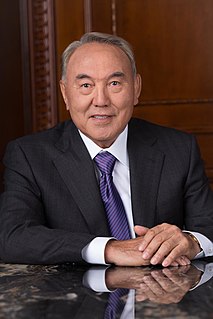A Quote by Paolo Bacigalupi
I think the fact that we, as writers, don't engage with resource-level questions is a symptom of our society where we just don't know where our stuff comes from.
Related Quotes
There's just so many facets, I think, of the ignorance in our society that have to be corrected if we're really going to have a democratic society and a society that is just and that respects all of the members of this society regardless of who they are, what color they may be, what sexual orientation that they have or what gender, you know, they happen to be.
I think at some level, it's just alchemy that we, as writers, can't explain when we write the characters. I don't set out to create the characters - they're not, to me, collections of quirks that I can put together. I discover the characters, instead. I usually go through a standard set of interview questions with the character in the beginning and ask the vital stuff: What's important to you? What do you love? Hate? Fear? .. and then I know where to start. But the characters just grow on their own, at a certain point. And start surprising me.
Just the fact that we can't pass budgets in our Congress, just the fact that we are gridlocked in our own democracy, the fact that everybody who travels can see that we're not investing in our airports, in our rail, in our infrastructure and so forth, people are noticing a United States that is not getting the job done in some ways.
I believe we are a species with amnesia, I think we have forgotten our roots and our origins. I think we are quite lost in many ways. And we live in a society that invests huge amounts of money and vast quantities of energy in ensuring that we all stay lost. A society that invests in creating unconsciousness, which invests in keeping people asleep so that we are just passive consumers or products and not really asking any of the questions.
Vulnerability is not weakness, and the uncertainty, risk, and emotional exposure we face every day are not optional. Our only choice is a question of engagement. Our willingness to own and engage with our vulnerability determines the depth of our courage and the clarity of our purpose; the level to which we protect ourselves from being vulnerable is a measure of our fear and disconnection.
I think a writer's job is to provoke questions. I like to think that if someone's read a book of mine, they've had - I don't know what - the literary equivalent of a shower. Something that would start them thinking in a slightly different way perhaps. That's what I think writers are for. This is what our function is.
There is this thing called the university, and everybody goes there now. And there are these things called teachers who make students read this book with good ideas or that book with good ideas until that's where we get our ideas. We don't think them; we read them in books. I like Utopian talk, speculation about what our planet should be, anger about what our planet is. I think writers are the most important members of society, not just potentially but actually. Good writers must have and stand by their own ideas.
At a theoretical level, I think a naturalist approach to religion is just asking questions I'm not interested in. They're perfectly legitimate in their own terms, but they don't address the actual experience of how one or other aspect of religion becomes existentially meaningful to us in our actual lives. The fact that we ourselves are the subject of investigation makes all the difference.




































